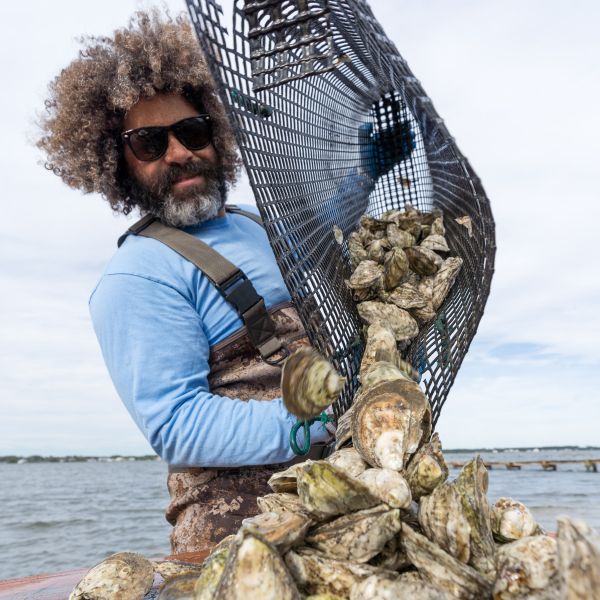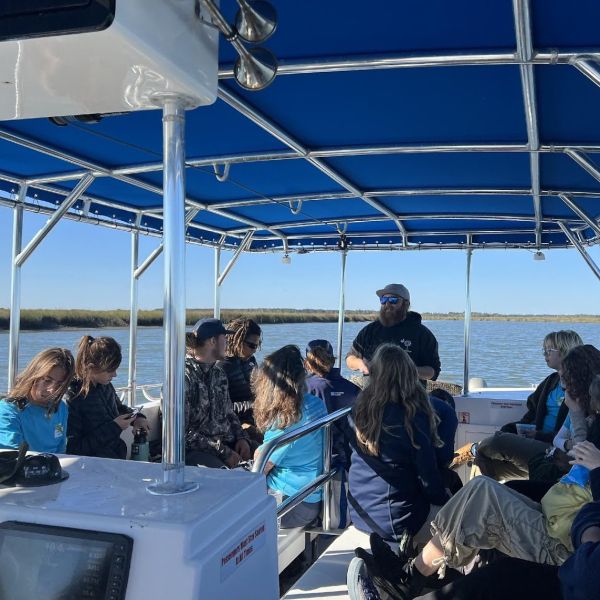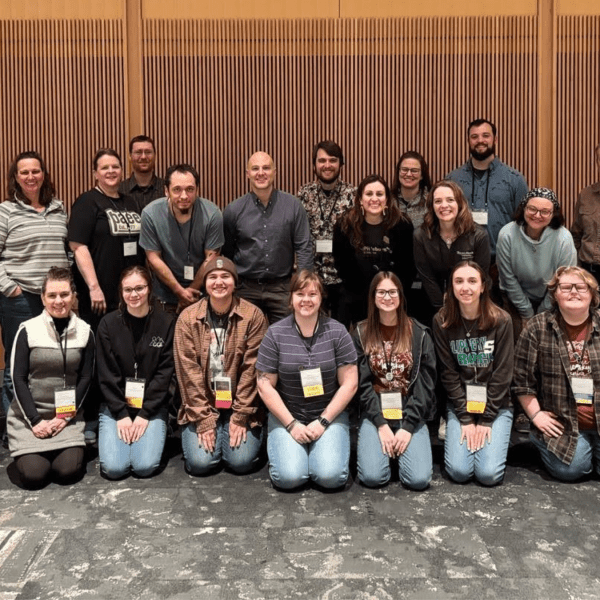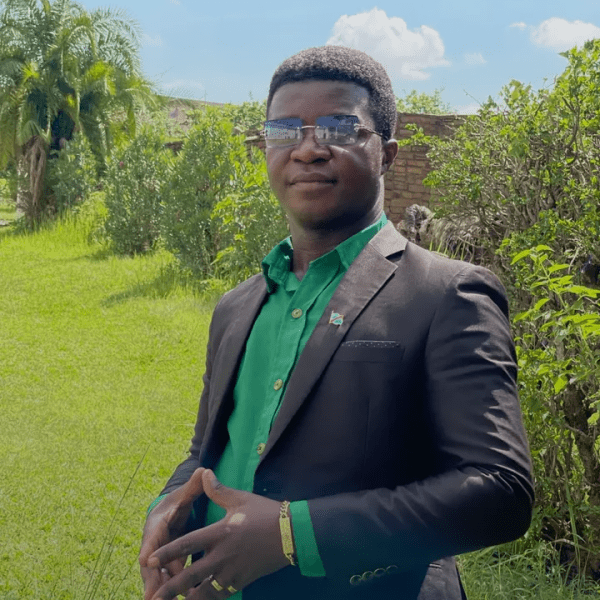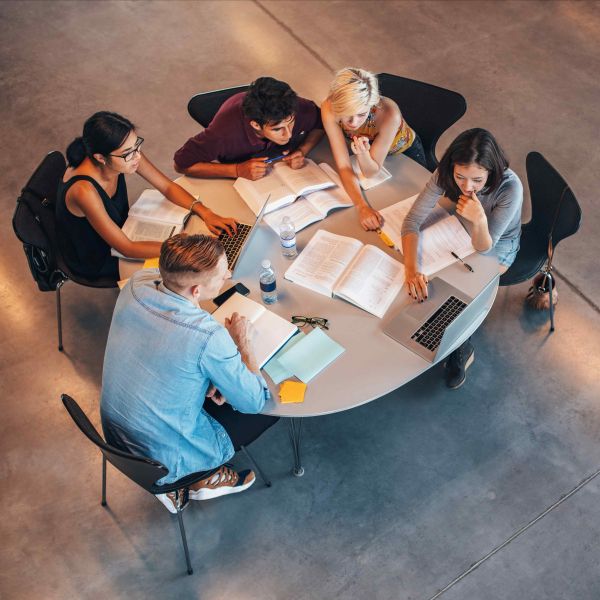
Blog

-
North Carolina Oyster Month is coming! From community storytelling to hands-on learning, aquaculture is equipping educators with the skills to lead in classrooms and in conversations across their communities. Read our latest in eeBLUE's Harvest Stories.
-
Knee-deep in sand and science, students from Jean Parker Elementary tracked sand crabs for a long-term scientific monitoring program and learned about marine careers. When students do the work, they start to see how they can be part of what protects it.
-
From whales to coral reefs, students dove into science through hands-on experiences that flowed together, like tributaries feeding a river of understanding. Read more in our latest eeBLUE Watershed Chronicles blog.
-
The South Carolina Aquarium Teen Conservation Crew is empowering high school students to tackle climate change through hands-on conservation and aquaculture education. Supported by the eeBLUE Aquaculture Literacy Mini-Grants Program, crewmates explored oyster farming’s ecological benefits firsthand…
-
This blog builds on a new collection of eeRESEARCH which explores how environmental educators can effectively address the intense emotions, anxiety, grief, anger, and helplessness, that students experience when learning about climate change and ecological crises. Rather than avoiding these feelings…
-
As an ee360+ training partner, University of Wisconsin-Stevens Point works with higher education faculty and staff to connect them through statewide networks that offer professional development and opportunities to build community through monthly webinars.
-
In the 16-week Teaching and Research in Environmental Education (TREE) Semester at Colorado College, undergraduates live, teach, and conduct research at the Catamount Center. TREE complemented its usage of the CAEE's portfolio certification process with NAAEE accreditation.
-
Slippery Rock University's online Master of Education in Environmental Education is a 30-credit program designed for formal and nonformal educators. Achieving NAAEE accreditation helped the program recruit high-quality students and assisted its students in pursuing excellence in the field.
-
AI didn't appear out of nowhere. It's built on the STEM foundation students explore every day. Some may have even helped shape it. This blog dives into why science classrooms are the perfect place to talk AI and the future.
-
What if school helped students imagine not just what is, but also what could be? Speculative thinking taps into critical consciousness, helping learners analyze systems and dream up possibilities. See how this mindset can transform your classroom.
-
What if your classroom was a river? That's what SeDoMoCha students explored through an eeBLUE-supported program. Students connected deeply with Maine's Penobscot River, raising salmon, restoring habitats, and more. Read the latest Watershed Chronicles to learn more.
-
From tide to table to trophies—students turned sablefish into success. In our latest Harvest Stories, dive into the full story to see how education and seafood flavor come together in one unforgettable project.
-
Inspired by the landscapes of the DRC, Kristian Katele created the "Green Piano," a one-of-a-kind way to bring music and reforestation together. Read his story.
-
Outreach or education? As an environmental educator, understanding this can make or break your programs. eePRO Group Moderator Bethany Kogut dives into the details of this distinction.
-
What do a sponge and an ice cube tray have to do with tree science? Students in Stroud Center's after-school programming are making surprising and fun connections within the world of watershed education. Read the full story in the latest Watershed Chronicles, a blog series by, about, and for…
-
What happens when the night isn’t so dark? From fireflies losing their glow to turtles losing their way, this latest post explores these impacts and more, including hands-on activities for educators to help students see how light pollution affects the natural world.
-
In this essay following the 2025 EE and Civic Engagement panel discussions hosted by Cornell, Nathan Spees examines youth empowerment programs, highlighting how giving youth a voice and agency can lead to meaningful political engagement and lasting change.
-
As a follow-up to the 2025 EE and Civic Engagement panel discussions hosted by Cornell, Dr. Yun-Wen Chan shares more about place-based deliberation, as a way to encourage learners to consider different stakeholder perspectives while examining environmental issues.
-
Explore the eeRESEARCH database through its potential to bridge the gap between academic research and practical use. With themed collections covering topics from multi-generational learning to environmental emotions, there's valuable research for every corner of EE.
-
Students at Tree Heroes Club dig into hands-on ecological investigations—measuring trees, studying leaves, and learning about the local watershed. But they're also growing something bigger: community. Read a new Watershed Chronicles blog post from Boxerwood, a grantee of the eeBLUE 21st CCLC…
-
Through exciting hands-on experiences like investigating the quality of their local waterways and participating in a stewardship project, students in the School Grounds to Sound program discover new possibilities in the natural world. Read more in this new post of the Watershed Chronicles series.
-
For Earth Team interns, addressing the challenges of the 21st century starts right at home. Read the inaugural post of eeBLUE's Watershed Chronicles to learn how Earth Team is partnering with local government agencies and organizations to deliver impactful projects to high schools across California.
-
Learn about the Universal Design for Learning in Environmental Education (UDL in EE) course offered by North Carolina Affiliates and how it addresses barriers to help environmental educators build their knowledge and expertise to make EE more accessible and inclusive to all learners.
-
Despite ongoing conflict in Northern Uganda, ERONet empowers women, youth, and people with disabilities through innovative Environmental STEM programs. By addressing unemployment and educational inequality, they equip communities with the skills to tackle local and global environmental challenges.
